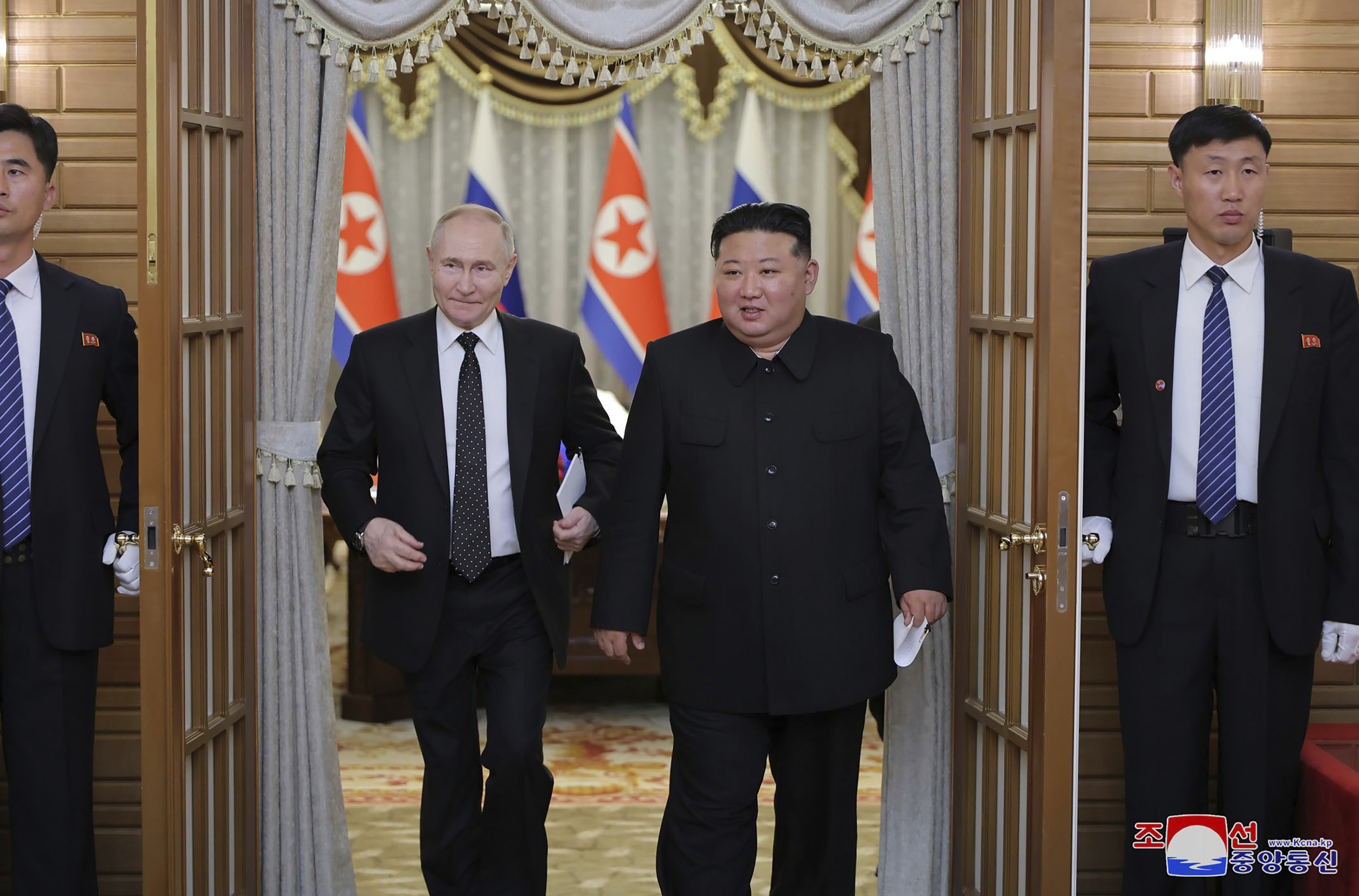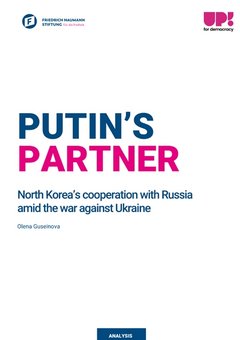Russia and North Korea
New ties between North Korea and Russia

Wladimir Putin and Kim Jong Un.
© picture alliance | 朝鮮通信社Recent reports suggest that North Korea has sent troops to Ukraine. A new study by the Friedrich Naumann Foundation for Freedom (FNF) analyzes the increasingly close military and economic ties between both countries—and recommends a counter-strategy for the West.
A new study by the Friedrich Naumann Foundation for Freedom Korea assesses the value of the arms trade between Russia and North Korea and analyzes the likelihood and impact of North Korean troops in Ukraine.
Olena Guseinova from Hankuk University of Foreign Studies in Seoul analyzed intelligence reports, leaked documents, and ammunition prices from previous North Korean arms deals. According to her analysis, the value of the current arms deliveries is estimated at up to $5.5 billion. Since North Korea and Russia are concealing their trade, there are uncertainties. However, even Guseinova´s most conservative estimate values the deliveries at more than $1.7 billion. In any case, North Korea could significantly boost its economy through cooperation with Russia. South Korea estimates the North’s total economic output at just $23.7 billion.
If current reports of North Korean troops in Russia prove true, North Korea’s revenues could increase further by hundreds of millions of dollars – as North Korea certainly will be paid for sending soldiers. Given past North Korean troop deployments to Syria or Angola and the evaluation of available evidence, Guseinova considers the deployment of North Korean troops to the war against Ukraine as plausible. However, in order not to endanger the stability of the North Korean regime, the risk of soldiers defecting, and the limited resources, a deployment of more than 20,000 soldiers seems unlikely. Additionally, it remains to be seen how heavily involved the troops would be in combat operations.
Ever-Closer relations
The study provides data showing how Russia and North Korea have grown closer since the start of the invasion of Ukraine. Official trade between the two nations has sharply increased. Just in the first half of this year, trade volume rose to $52.9 million. It was $34.4 million in all of 2023. This growth suggests that annual trade between the two countries could return to the level prior to the strict UN sanction round in 2017.
The deepening relationship between Russia and North Korea is also reflected in a notable rise in diplomatic visits between the two states. Guseinova’s media-analysis shows that since July 2023, two high-level meetings per month have taken place on average. In 2024, more than 24 such meetings have taken place already. In the past three decades, less than five meetings were the norm.
The Kremlin’s Strategy
"Russia is turning to North Korea primarily because of its massive need for ammunition," says Guseinova. However, there is also another reason: "Russia is using its relationship with North Korea — and the potential transfer of military technology — as a tool to test the unity of Western alliances, particularly in East Asia. Russia aims to pressure countries like South Korea and Japan into reconsidering their support for Ukraine."
Russia's strategy has its limitations. North Korea provides outdated and unreliable military technology. North Korea, with its history of shifting alliances, remains an unpredictable partner. There is also the risk that by strengthening an increasingly aggressive North Korea, Russia might strain its relationship with China. Moscow's deepening ties with a pariah state like North Korea, especially through the transfer of sensitive technologies, could further harm Russia’s reputation on the global stage.
Despite these challenges, the EU and its partners should take steps to mitigate the risks and negative consequences of this growing cooperation. The FNF analysis recommends bolstering support for like-minded nations in the Indo-Pacific, particularly South Korea and Japan, through enhanced security and economic partnerships to shield them from Russia's coercive tactics.
Furthermore, the EU should refine its sanctions strategy to more effectively monitor and target financial flows into Russia, especially those that fund military activities and arms deals with North Korea. The EU should also intensify its diplomatic efforts with countries in the Global South and emphasize the detrimental impact of the Russia-North Korea partnership on a rules-based order and global stability.
The analysis was first picked up by BILD on 27.10.2024.

